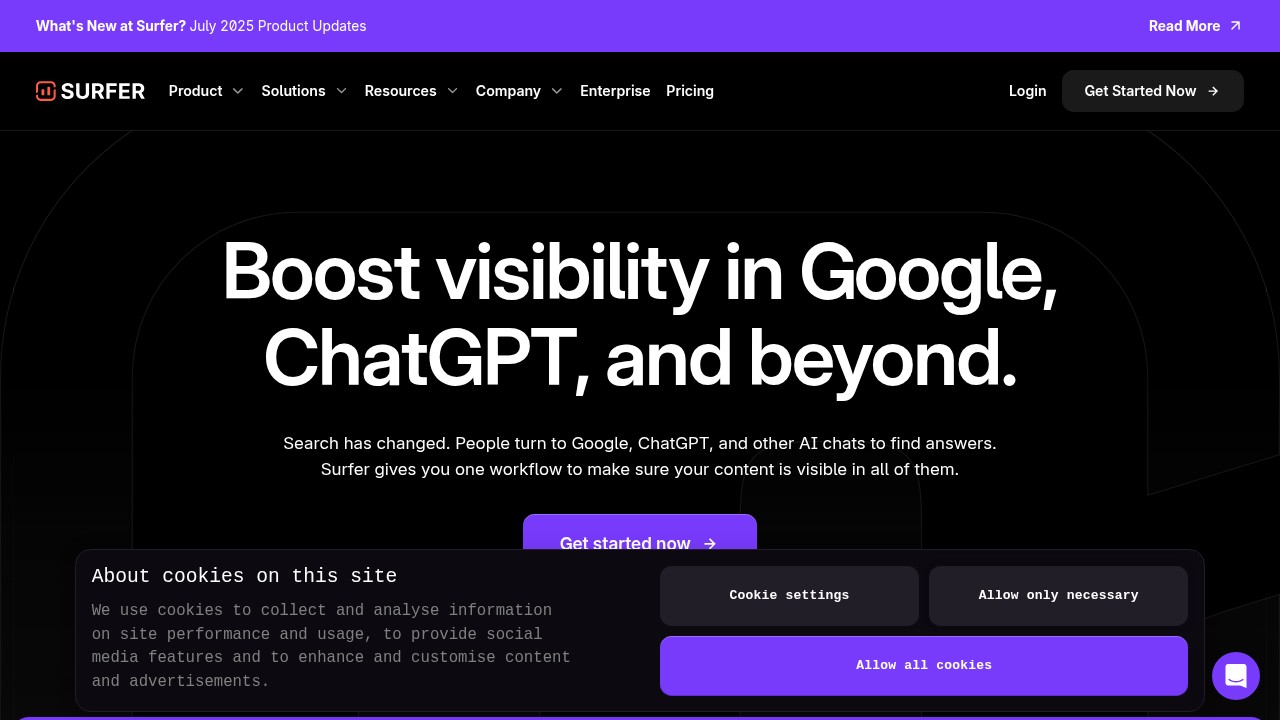Top Search Engine Optimization SEO Tools for Automated Success in 2025
Choosing the best search engine optimization SEO tools today is not so simple anymore. There are hundreds of options, all promising to boost your ranking, make content creation fast, and even let you run SEO on autopilot. But which ones work? And which really help SaaS companies, startups, or anyone with limited time?
Let’s break down the most useful SEO tools, both classic and modern, with a focus on automation and scalability. Some, like seoblogs, bring something new for those wanting a “set-it-and-forget-it” strategy.
1. seoblogs: Automated SEO Content for SaaS
seoblogs is designed for SaaS and tech businesses that do not want to spend hours writing blog posts or learning SEO tricks. Instead, it creates and publishes optimized posts for you.
Key Features:
- Full automation – you set it and let it make SEO content
- SEO-optimized by default, no guesswork
- Connect your custom domain for brand consistency
- Fixed pricing so your cost never jumps
- Scales from 1 to 5 blogs and up to 35 posts/week (Pro plan)
Strengths:
- Saves time, especially for non-writers or small teams
- Keeps a regular posting schedule (important for SEO, see Google’s docs)
- No extra hiring or agency needed
- Simple setup, you don’t need deep tech skills
Weaknesses:
- Less control over very specific post topics or style
- Not suitable for companies wanting full manual article curation
Who should try it: SaaS founders, solopreneurs, agencies with many SaaS clients, or anyone who wants SEO growth without managing writers.
2. Surfer: Data-Driven Content Optimization
Surfer blends classic keyword research, real-time content grading, and AI writing. It helps you know what keywords to include and how your content stacks up against competitors.
Pros:
- Strong content optimization (shows you how to improve existing articles)
- Useful WordPress/Google Docs integration
- AI content for scaling up topics
Cons:
- Pricey ($99/month minimum)
- Not much technical SEO (mainly about writing, not site structure)
When to use: When you already blog and now want an “SEO coach” to help you optimize every post.
3. Gumloop: Build Your Own SEO Workflows
Gumloop lets you craft automated SEO workflows. Want to scrape keywords, cluster them, or send reports to your team? You chain together AI agents in a no-code builder.
Good For:
- Agencies or in-house marketers wanting deeper automation (without coding skills)
- Competitor research, keyword expansion, reporting
Drawbacks:
- Starting price is high for solopreneurs ($97/month)
- Needs some time to set up and learn what the workflows do
4. Ahrefs & Semrush: Full-Service Classic SEO Toolkits
If you need the “all-in-one” platform, you can’t ignore:
Great for:
- People auditing existing sites, not just building new content
- Agencies handling many client projects
- Detailed reporting and competitive analysis
Not so great for small budgets. Entry plans start at over $100/month, and advanced features can get technical.
5. Google Search Console & Free Google Tools
Google gives you:
These are free. They will not write posts for you, but they help spot trouble, find search terms, and check if you’re indexed.
What Makes a Good SEO Tool in 2025?
- Automation: Helps you move fast, with fewer people.
- Usability: Not everyone has time to learn complex dashboards.
- Reliable data: Avoids “guessing” what keywords or fixes matter.
- Content focus: Good posts still win (see Google’s advice).
- Cost fit: Predictable prices and a plan fit for your size.
Who Wins for Different Needs?
- Full Automation (SEO blogs written for you): Try seoblogs if you want reliable, hands-off content output.
- Content Improvements: Surfer or Clearscope give great guidance for manual writers.
- Deeper Automation Workflows: Gumloop lets you connect everything and build serious automations.
- Classic All-In-One: Look at Semrush or Ahrefs if you want everything in one (big, sometimes complicated) place.
- On a Tight Budget: Use the stack of free Google tools and see our post on Best Google Search Engine Optimization Tools Free for 2025.
Related Reading
- How Anyone Can Use SEO Tools for Better Ranking
- Top Search Engine Optimization SEO Techniques That Work
FAQ
Q: Do you need to use more than one SEO tool?
Sometimes yes. Automated content tools like seoblogs may cover writing, but free tools like Google Search Console help you detect problems or check indexing.
Q: Is manual content always better than AI-generated?
Manual content can be more unique and specific, but today’s automated tools are good at meeting Google’s “helpful content” advice when set up right.
Q: How often do I need to publish new blog posts for SEO?
Consistency matters more than daily frequency. Seoblogs (and similar) offer fixed schedules to keep you visible, which Google has said helps.
Q: Are expensive SEO tools worth the money for small businesses?
Not always. Many start with free options, only moving to paid tools when scaling up or needing advanced analysis.
Q: How do I know if my SEO tools are actually working?
Track organic traffic growth, keyword rankings, and see if your pages rank for your goal queries. If not, try different tools or tweak your approach.
Today, you don’t have to pick just one approach. But automating repetitive work and focusing on useful, regular content is already possible for SaaS companies and small teams using the right SEO tools.

